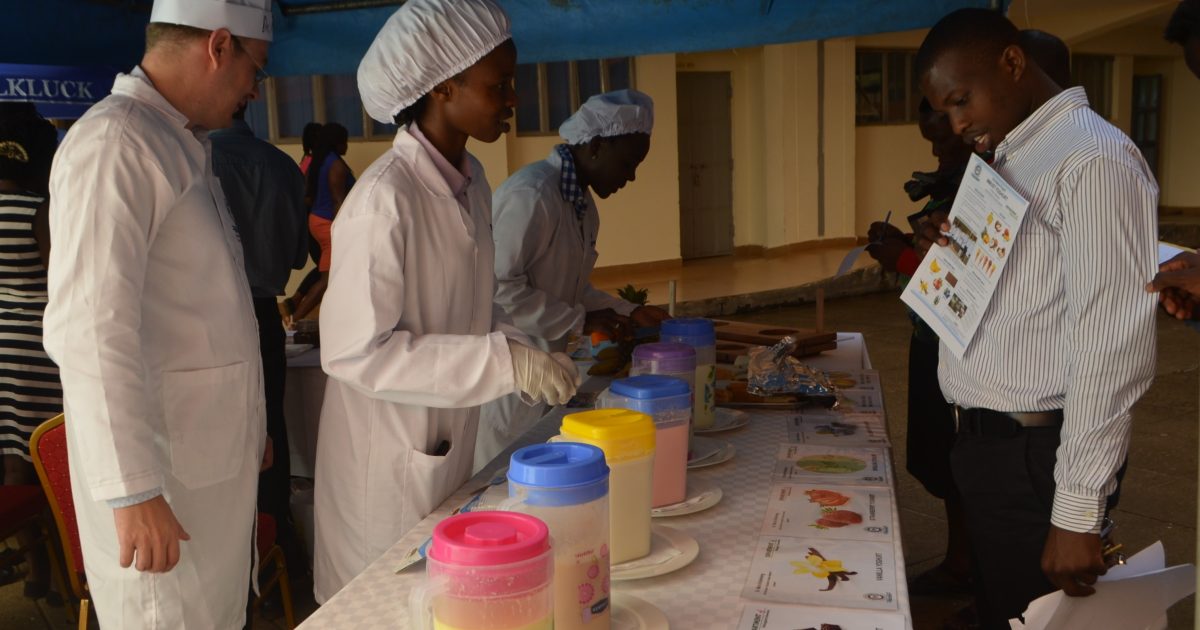Kakamega residents had a rare chance to test food products developed by Masinde Muliro University during a food expo held at the institution.
The expo was meant to get the experience of consumers on the food products that have been developed before introducing them to the market.
The food substances included yoghurts made from different products with different flavors, chicken meat, biscuits produced with crickets, spirulina, mushrooms, cheese among other traditional foods.
Those who tested the food were required to fill up questionnaires explaining their experience of the different flavors.
Professor of Public Health and Nutritional Sciences Asenath Sigot who led the testing said the mini-food expo was meant to get response from consumers on the components present in the traditional food products that are normally overlooked.
She noted, the department of public health and nutritional sciences is keen on identifying the active component present in food products so that consumers can consume them for health benefits so as boost their immunity.
“We want people to learn that it is not just food we consume as such, but those compounds that can help us boost our immunity and to protect us from some of the diseases that afflict us,” she noted.
She said the idea was motivated by a course on functional foods for PHD students who have gone further to identify the actual active component in food rather than settling on the macronutrients and micronutrients.
The Professor noted that once they identify the components, it will give a consumer an understanding of the compounds present in certain foods in order to include in their diet for a balanced diet.
“These recipes have got those active components and students use them in preparing new food products. Some of those food products we have today we want the consumers to test and to say how they love them and if we are successful, these are like prototypes we can now develop products that can be analyzed, tested and then we can package them and take them to the market,” she added.
She noted that the university’s department of public health is concerned with the increasing illnesses which afflict the community hence emphasizing on prevention through consumption of healthy foods and balanced diets.
“We want to prevent those illnesses and to do that we eat the right food, food that has the right components in the right proportion to help people so they don’t get these diseases that are afflicting our communities. So for us in public health nutrition we try to emphasize that if we eat healthy foods we should be able to be free from those diseases,” she added.
Professor Sigot said the food products they are encouraging residents to consume are easily obtained from locally available materials hence they are cheap.
“But some are expensive because only few people are producing, for instance millet which is good has many nutrients but few people are producing,” she added.
The University also produces Spirulina, which is a blue-green alga that is grown in ponds and is very rich in amino acids.
Spirulina is also low in sugar, fat, has low cholesterol levels and has high chlorophyll content and acts as an anti-inflammatory.
According to their initial tests, one gram of spirulina supplement provides about one kilogram equivalent of nutrients in vegetables, fruits, nuts, meat, pork and chicken.
In the digestion process, spirulina is easily digestible since the nutrients are easily absorbed so one does not take up much time getting nutrients from spirulina products.
Spirulina which comes as a powder can be consumed by adding in cold liquids or warm foods. Hot liquids or foods dilute the nutrients.
By Moses Wekesa and Margaret Andeso





